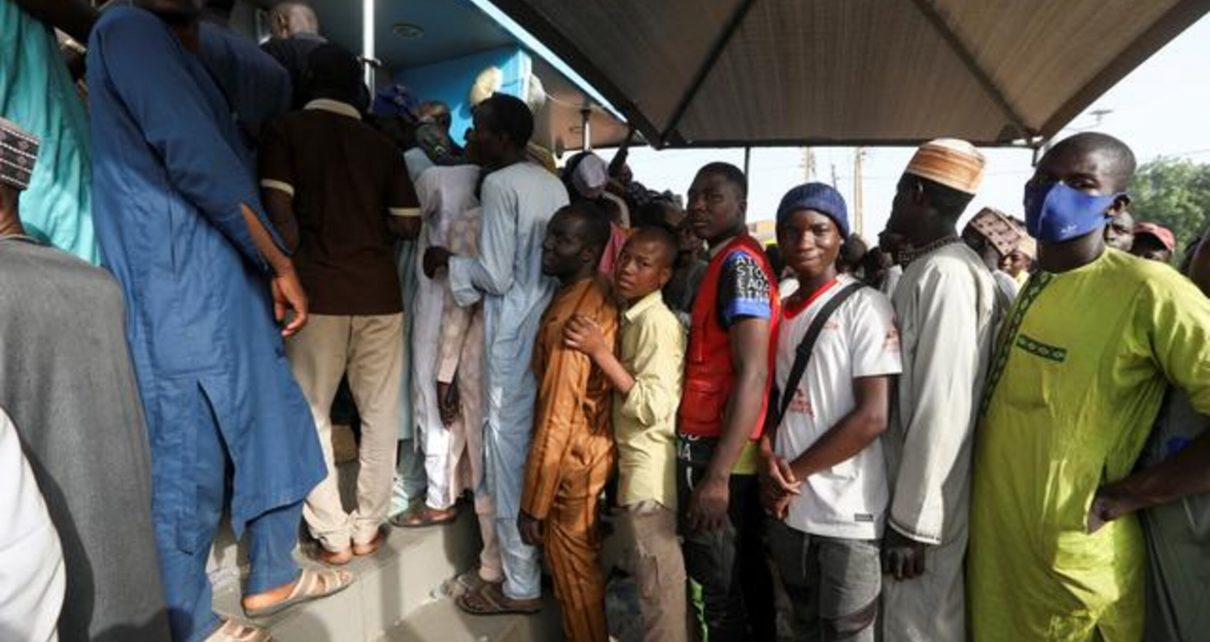
Nigerians have the next 70 days to survive a regime that has chastised them with whips and is promising to further chastise them with scorpions. Minister of Finance, Budget and National Planning, Mrs. Zainab Ahmed, last week not only renewed the Buhari regime’s threat to increase Nigerians heavy burden by piling far higher fuel prices, but also told the incoming administration to immediately raise the Value Added Tax from 7.5 per cent to 10 per cent.
While depleting all available resources and adding heavy local and foreign debts to the bargain, the regime seems determined to drain whatever finances are available. So, rather than wind down and start producing handover notes, it wants to conduct a census that promises to be controversial. But more importantly, the census will be used to legally take out N869 billion or $1.88 billion from our national coffers. It is like a retirement package.
No, the regime did not directly say it is increasing the cost of PMS, rather its claims it wants to remove an artificial fuel subsidy. But this may exist only because for eight years, the regime has been incapable of repairing even one of the four existing refineries, and has, of course, been unable to build a single new one.
Four years before becoming President in 2015 and being inducted into the subsidy scheme, Buhari, a former Minister of Petroleum had made the correct analysis of the situation. He said: “Who is subsidising who? The Nigerian oil industry was developed with Nigerian capital. Most of the experts are Nigerians, if you go to the fields. It is Nigerian capital; it is Nigerian oil. What I understand that Nigeria should charge Nigerians is the cost of one barrel at the wellhead and then the cost of transportation to the refinery, the cost of refining it and its cost at the pump. If anybody says he is subsidising anything, he is a fraud. So all these people talking about subsidy, who is subsidising who?”
Those were the days of innocence when patriotism was key and issues were subjected to scientific analysis. Once in power, President Buhari went silent and allowed his aides to put forward unreasonable arguments some of which his Finance Minister last week repeated.
First, let me point out the incontrovertible, which was the basis of Buhari’s old submission before seeing the new light. The country has the crude oil, the expertise and the resources to refine crude oil which would allow it make profit while selling the products to Nigerians and their neigbours.
The issue of subsidy comes in when refining is outsourced to foreign countries and consequently, local jobs are exported. In those shark-infested waters, anything happens from underhand dealings to unspeakable corruption and outright theft of funds in the guise of subsidy.
If the option of importing petroleum products is taken as the Buhari regime has done, it lays the country open to two primary variables over which Nigeria has no control. First, is the cost of oil which is determined in the international circuit with lots of manipulations. So the country is subjected to whatever cost the foreign refineries claim they are purchasing a litre of crude oil. The second variable over which Nigeria would not have control is the foreign exchange. So even if you remove subsidy and the Naira is devalued as the Buhari regime does continuously, the so-called subsidy would resurface. In other words, if subsidy had been removed by Buhari when he became President in 2015 with the Naira at N180 to the dollar, now that it has devalued the Naira to N740 to the dollar, the subsidy would have resurfaced. So it is bad economics to run the country on imported petroleum products and turn around to claim you are removing subsidy.
Minister Ahmed says what the regime is doing is the removal of subsidy and enthronement of a free market regime; if this were so, does the removal of subsidy translate to the removal of common sense?
She made another fallacious statement: “When you remove the subsidy, then you have marketers that would be able to invest and bring this fuel product and sell it at market prices right now.” Completely false assumption Madam. This same argument was made some 15 years ago in the cases of diesel and kerosene. Until date, marketers have not invested to bring in these products.
Finance Minister Ahmed made yet another assumption which is not borne out by our experience. She claimed with the funds saved from the so-called subsidy removal: “You can build more hospitals, more schools, provide more social services, improve infrastructure that will enhance the quality of life of the people, instead of just using it on a consumption item.” The reality is that even the normal budget is frittered away, not to talk about an expected windfall. The fact that more money will be available does not mean more hospitals will be built because even the money spent on existing ones are not properly accounted. For instance, the budgetary provision for the State House Clinic from 2015 to 2021 was N14.886 billion. Yet, when the late Chief of Staff to the President, Abba Kyari contracted a COVID-19 related ailment, the clinic could not treat him. When First Lady Aisha Buhari had some neck challenges it was to the United Arab Emirate she was flown. If despite the huge sums made available to the State House Clinic annually, President Buhari has to become a temporary resident of Britain on account of his medical tourism, can we believe the Honourable Minister that money she claims will come from removal of oil subsidy will be judiciously spent?
A major economic challenge the Buhari regime has subjected Nigerians is the contrived currency change crises. Twice did the Supreme Court speak, twice did the Buhari regime hear, twice did it pretend to be deaf and dumb until it was cornered.
It took nine days after the second Supreme Court order that the old and new currencies should remain in circulation until December 31, 2023, for the regime to stir from its pretended slumber. It claimed to be unaware that the order had not been obeyed and rather than apologise for the added pains it caused Nigerians, it used the Central Bank of Nigeria, CBN, Governor Godwin Emefiele as fall guy. It declared that it did not tell the CBN not to obey the Supreme Court, but neither did the Presidency say it directed the CBN to obey the ruling. Given the unavailability of cash, even rich Nigerians were forced to live like paupers.
The Buhari regime seems determined to leave the legacy of a Nigeria where everybody, except a handful, would be economically, politically and socially oppressed. Is this democracy?
- Owei Lakemfa is a journalist, labour and social rights activist and host of Diplomatic Hour, Citizen FM, Abuja. Readers’ comments are welcome.


